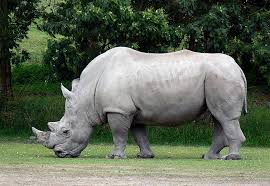Science News Roundup: Coronavirus variants escape effects of antibody drugs Scientists produce embryos in race to save northern white rhino from extinction
Drugs, vaccines less effective vs new virus variants; antibody cocktail may protect patients' contacts The following is a roundup of some of the latest scientific studies on the novel coronavirus and efforts to find treatments and vaccines for COVID-19, the illness caused by the virus.

Following is a summary of current science news briefs.
Drugs, vaccines less effective vs new virus variants; antibody cocktail may protect patients' contacts
The following is a roundup of some of the latest scientific studies on the novel coronavirus and efforts to find treatments and vaccines for COVID-19, the illness caused by the virus.
Coronavirus variants escape effects of antibody drugs Scientists produce embryos in race to save northern white rhino from extinction
Scientists working to save the northern white rhino from extinction have produced two more embryos of the world's most endangered mammal, increasing the number of viable embryos produced so far to five. There are no known living males and neither of the two remaining northern white rhinos on Earth - a mother and her daughter living in Kenya - can carry a calf to term.
Lobster shell patterns make concrete stronger: Australian researcher
Inspired by the natural, twisting patterns of a lobster shell, Australian researchers say they have found a way, using 3D printing technology, to improve the strength of concrete for use in complex architecture. Reinforced with steel fibres, the concrete becomes more durable when set in a pattern that copies a lobster shell, according to a new study from Melbourne's RMIT University.
Babies from famed carnivorous dinosaur group were 'born ready' to hunt
Scientists for the first time have found embryonic remains from the group of ferocious meat-eating dinosaurs that includes T. rex - fossilized jaw and claw bones that show these record-size babies looked a lot like adults and were "born ready" to hunt. The fossils, the researchers said on Tuesday, represented two species from the group called tyrannosaurs, the apex predators in Asia and North America during the Cretaceous Period toward the end of the dinosaur age.
Scientists in Greece find 20 million year-old petrified tree
Greek scientists on the volcanic island of Lesbos say they have found a rare fossilized tree whose branches and roots are still intact after 20 million years. The tree was found during roadwork near an ancient forest petrified millions of years ago on the eastern Mediterranean island and transported from the site using a special splint and metal platform.
(This story has not been edited by Devdiscourse staff and is auto-generated from a syndicated feed.)
- READ MORE ON:
- Melbourne
- Asia
- Mediterranean island
- Earth
- Kenya
- North America
- Greek
- Australian
- Greece
ALSO READ
Miraculous total solar eclipse mesmerizes North America as clouds clear just in time
Clinging to ropes, passengers escape bus swept away by Kenya floodwater
Earthquake of magnitude 3.7 strikes J-K's Kishtwar
Science News Roundup: Total solar eclipse: North Americans celebrate with cheers, music and matrimony; SpaceX launches South Korea's second spy satellite amid race with North and more
Kenyan hospital lays off 100 striking doctors as nationwide strike nears a month










